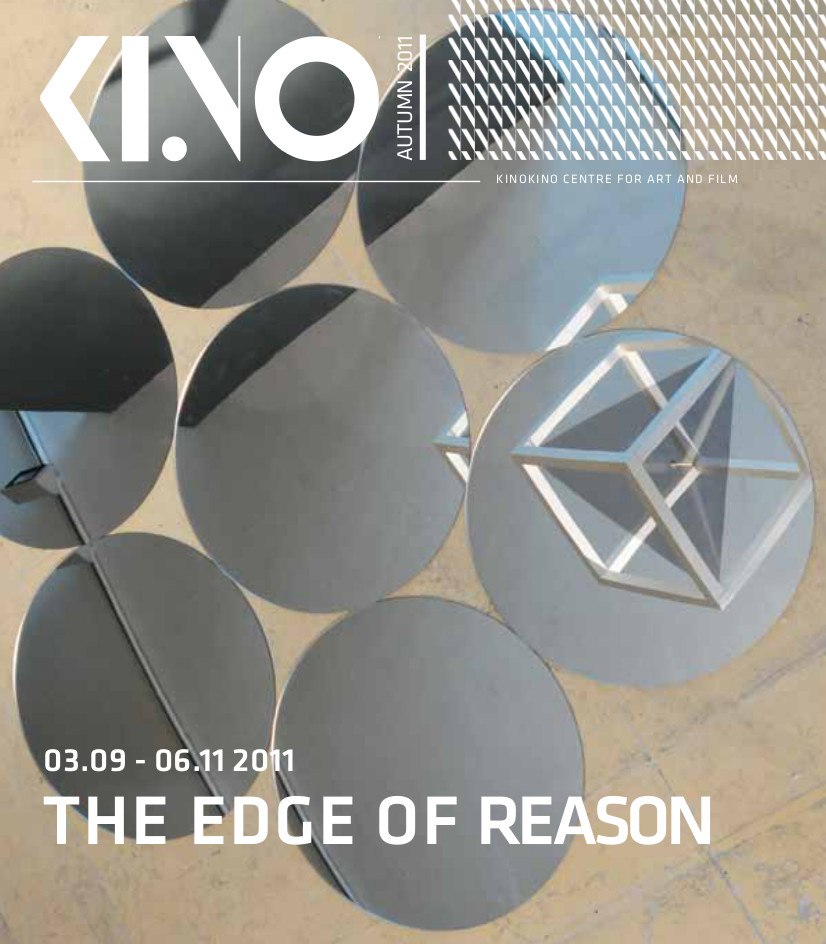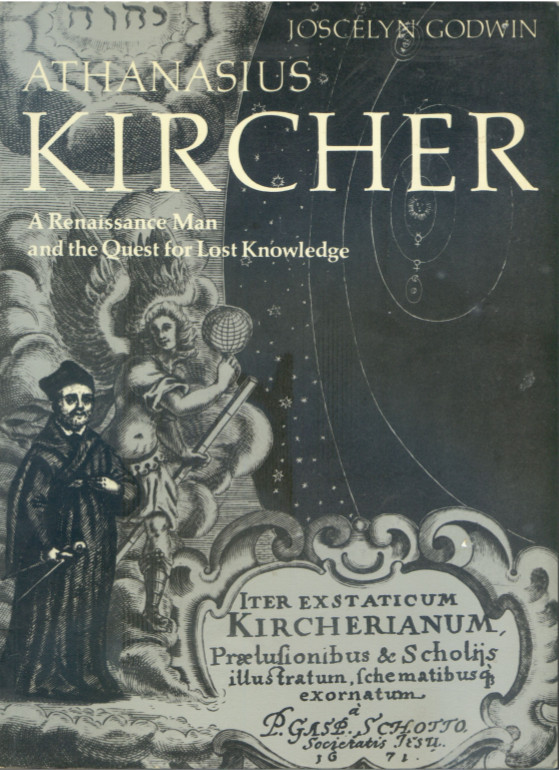The Edge of Reason, catalogue (2011)
Filed under catalogue | Tags: · art, irrational, mysticism, occultism, rationalism, science

The exhibition The Edge of Reason, curated by Norwegian and London-based artists Sidsel Christensen and Ben Judd in 2011 in the KinoKino centre in Sandnes, Norway, explored notions of authenticity and belief, inviting viewer to have a first-hand experience of a world beyond the senses.
Christensen and Judd invited artists whose work helps to trace a historical overlapping in the development of the empirical and scientific with the irrational and mystical. The artists in the exhibition presented a duality of experience, by moving in-between a sceptical enquiry and a more internalised visionary engagement to explore the unknown.
Artists: Sidsel Christensen, Marcus Coates, Maya Deren, George Gurdjieff, Susan Hiller, Ben Judd, Hilma af Klint, Susan MacWilliam, Oscar Muñoz, Karen Russo (with Jeremy Millar, Shezad Dawood, Mark Titchner), Jane and Louise Wilson.
The catalogue contains transcript of a 2011 séance contacting the Swedish pioneer of abstract art and mystic Hilma af Klint (1862—1944; pages 16-23).
Publisher KinoKino Centre for Art and Film, Sandnes, Norway, 2011
56 pages
Henrik Bogdan, Martin P. Starr (eds.): Aleister Crowley and Western Esotericism (2012)
Filed under book | Tags: · esotericism, magick, mysticism, occultism, occultural studies, religion, sexuality

Henrik Bogdan and Martin P. Starr offer the first comprehensive examination of one of the twentieth century’s most distinctive occult iconoclasts. Aleister Crowley (1875-1947) was a study in contradictions. He was born into a Fundamentalist Christian family, then educated at Cambridge where he experienced both an intellectual liberation from his religious upbringing and a psychic awakening that led him into the study of magic. He was a stock figure in the tabloid press of his day, vilified during his life as a traitor, drug addict and debaucher; yet he became known as the perhaps most influential thinker in contemporary esotericism.
The practice of the occult arts was understood in the light of contemporary developments in psychology, and its advocates, such as William Butler Yeats, were among the intellectual avant-garde of the modernist project. Crowley took a more drastic step and declared himself the revelator of a new age of individualism. Crowley’s occult bricolage, Magick, was a thoroughly eclectic combination of spiritual exercises drawing from Western European ceremonial magical traditions as practiced in the nineteenth-century Hermetic Order of the Golden Dawn. Crowley also pioneered in his inclusion of Indic sources for the parallel disciplines of meditation and yoga. The summa of this journey of self-liberation was harnessing the power of sexuality as a magical discipline, an instance of the “sacrilization of the self” as practiced in his co-masonic magical group, the Ordo Templi Orientis. The religion Crowley created, Thelema, legitimated his role as a charismatic revelator and herald of a new age of freedom under the law of “Do what thou wilt.”
The influence of Aleister Crowley is not only to be found in contemporary esotericism-he was, for instance, a major influence on Gerald Gardner and the modern witchcraft movement-but can also be seen in the counter-culture movement of the late 1960s and early 1970s, and in many forms of alternative spirituality and popular culture. This anthology, which features essays by leading scholars of Western esotericism across a wide array of disciplines, provides much-needed insight into Crowley’s critical role in the study of western esotericism, new religious movements, and sexuality.
Publisher Oxford University Press, 2012
ISBN 0199863091, 9780199863099
406 pages
Joscelyn Godwin: Athanasius Kircher: A Renaissance Man and the Quest for Lost Knowledge (1979)
Filed under book | Tags: · 1600s, archaeology, history of science, history of technology, kabbalah, linguistics, magnetism, music, mysticism, optics, religion, science, technology

Athanasius Kircher (1602-80) stands out as one of the last all-encompassing minds, living in the age of Descartes and Newton, but expounding his knowledge in the light of a unified, spiritual world-view. For this true Renaissance man, the whole cosmos was a glorious theophany waiting to be explored.
Kircher was a Jesuit and an archeologist, a phenomenal linguist and an avid collector of scientific instruments and geographical exploration. He probed the secrets of the subterranean world, deciphered archaic languages, experimented with alchemy and music-therapy, optics and magnetism.
Egyptian mystery wisdom, Greek, Cabbalistic and Christian philosophy met on common ground in Kircher’s work; his sumptuous, encyclopaedic volumes were revered throughout Europe. His gigantic oeuvre is approached here through striking engravings – most of them reprinted for the first time – together with annotations and an introduction to Kircher’s life and work.
Publisher Thames & Hudson, 1979
Art and Imagination series
ISBN 0500810222, 9780500810224
96 pages
PDF (121 MB, no OCR)
Comment (0)
